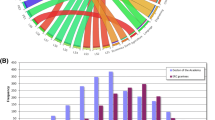Abstract
Relationships between age and scholarly impact were assessed by determining the number of times single-author articles (N=227) published inPsychological Review between 1965 and 1980 were cited in the fifth year following publication. There were substantial individual differences in citation rates, but this measure of scholarly impact did not correlate with either the chronological age of authors or their professional age (years since PhD award). Although the majority of articles inPsychological Review were published by authors under the age of 40, such a bias is to be expected in terms of the age distribution of American psychologists. When allowance was made for the number of authors in different age ranges, older authors were no less likely than younger authors to have generated a high-impact article (an article cited 10 or more times in the fifth year after publication). The data offer no support to claims that publications by young scientists have greater impact.
Similar content being viewed by others
References
G. H. HARDY,A Mathematician's Apology, Cambridge, University Press, Cambridge, 2nd Ed., 1967.
C. W. ADAMS, The age at which scientists do their best work,Isis, 36 (1946) 166.
H. ZUCKERMAN, R. MERTON, Age, aging, and age structure in science, in: M. W. RILEY, M. JOHNSON, A. FONER (Eds),Aging and Society, vol. 3, Russel Sage Foundation, New York, 1972.
H. C. LEHMAN,Age and Achievement, Princeton University Press, Princeton, 1953.
W. DENNIS, The age decrement in outstanding scientific contribution: Fact or artifact?,American Psychologist, 13 (1958) 457.
S. COLE, Age and scientific performance,American Journal of Sociology, 84 (1979) 958.
D. DE SOLLA PRICE,Little Science—Big Science, Columbia University Press, New York and London, 4th Ed., 1971.
H. ZUCKERMAN,Scientific Elite, Free Press, New York, 1977.
R. OVER, Does research productivity decline with age?Higher Education, 11 (1982) 511.
D. K. SIMONTON, Quality, quantity, and age: The careers of ten distinguished psychologists,International Journal of Aging and Human Development, 21 (1985) 241.
K. L. HORNER, J. P. RUSHTON, P. A. VERNON, Relation between aging and research productivity of academic psychologists?Psychology and Aging, 1 (1986) 319.
D. KOULACK, H. J. KESELMAN, Ratings of psychology journals by members of the American Psychological Association,American Psychologist, 30 (1975) 1049.
L. C. BUFFARDI, J. A. NICHOLS, Citation impact, acceptance rate, and APA journals,American Psychologist, 36 (1981) 1453.
R. OVER, Collaborative research and publication in psychology,American Psychologist, 37 (1982) 996.
L. R. HARMON,A Century of Doctorates: Data Analyses of Growth and Change, National Academy of Sciences, Washington, D. C., 1978.
L. A. JAKOBOVITS, C. E. OSGOOD, Connations of twenty psychological journals to their professional readers,American Psychologist, 22 (1967) 792.
L. V. XHIGNESSE, C. E. OSGOOD, Biographical citation characteristics of the psychological journal network in 1950 and in 1960,American Psychologist, 22 (1967) 778.
Author information
Authors and Affiliations
Rights and permissions
About this article
Cite this article
Over, R. Does scholarly impact decline with age?. Scientometrics 13, 215–223 (1988). https://doi.org/10.1007/BF02019959
Received:
Issue Date:
DOI: https://doi.org/10.1007/BF02019959




